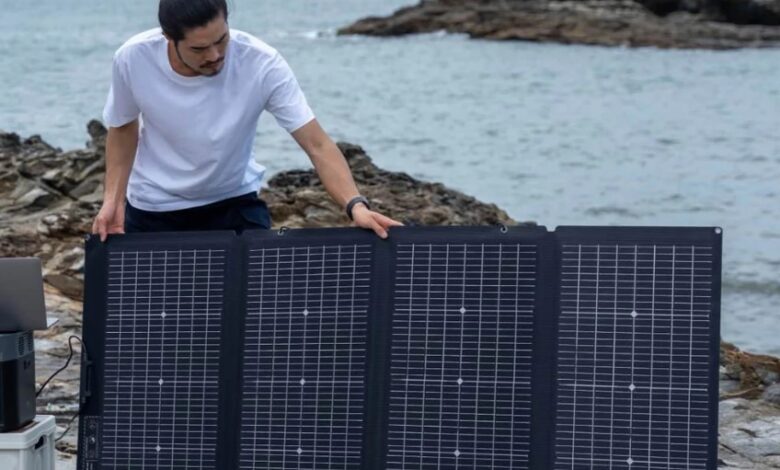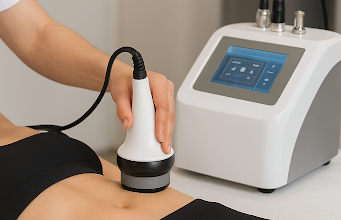Essential Solar Panel Maintenance Tips for Optimal Efficiency

Essential Tips for Maintaining Your Solar Panels
Solar panels are a smart investment for reducing energy costs and promoting environmental sustainability. To ensure they continue to perform efficiently, regular maintenance is crucial. Maintaining your solar panels involves various steps, including cleaning, inspections, and performance monitoring. This guide provides comprehensive tips to help you keep your solar panels in top condition, maximizing their efficiency and lifespan.
How Often Should You Clean Your Solar Panels?
When deciding how often to clean your solar panels, several factors need to be considered.
Factors Influencing Cleaning Frequency
Your location plays a significant role in determining cleaning frequency. Areas with heavy pollution, dust, pollen, or bird droppings will require more frequent cleanings. Additionally, the angle and position of your solar panels can impact how quickly they accumulate dirt. Flat or low-angled panels are more prone to dirt buildup compared to steeply angled ones that benefit from natural rainfall cleaning.
Recommended Cleaning Intervals
Typically, it’s advisable to clean your solar panels at least twice a year. However, if you live in an area with high levels of airborne debris or limited rainfall, more frequent cleanings may be necessary. Monitoring your energy output can also help determine the need for cleaning. A noticeable drop in efficiency could indicate that your panels require attention.
Impact of Environmental Conditions
Environmental conditions such as nearby construction, seasonal changes, and local wildlife can affect how quickly your panels get dirty. Regular awareness of the surroundings and any ongoing activities that may lead to increased dirt can help you decide when it’s time to clean your panels. Adjusting your cleaning schedule based on these factors will ensure optimal performance.
Best Practices for Cleaning Solar Panels
Knowing how to clean your solar panels properly is fundamental for maintaining their efficiency and preventing damage.
Necessary Tools and Equipment
Basic tools for cleaning solar panels include a soft brush, a squeegee, a bucket of soapy water (using mild detergent), and a hose with a gentle nozzle. It’s important to avoid abrasive materials or harsh chemicals, as they can scratch, damage, or reduce the efficiency of your solar panels.
Step-by-Step Cleaning Process
- Turn off the solar panel system – Ensure your safety and the system’s protection.
- Mix the cleaning solution – Combine mild detergent with water in a bucket.
- Rinse the panels – Use the hose to remove loose dirt and debris.
- Scrub gently – Use a soft brush or non-abrasive sponge to clean the surface lightly.
- Rinse again – Remove any soapy residue with the hose.
- Dry the panels – Use a squeegee to remove excess water and avoid streaks.
Safety Precautions During Cleaning
Safety is crucial when cleaning solar panels. Always wear rubber gloves and non-slip shoes for protection. Use a stable ladder if accessing roof panels. Avoid cleaning during peak sunlight hours to prevent burns or potential damage from sudden temperature changes. Prioritize safety to maintain both personal well-being and panel longevity.
When to Seek Professional Help
If the panels are difficult to access or you’re unsure about doing the task yourself, it’s best to consult a professional cleaning service. They have the experience and proper equipment to clean your panels safely and efficiently without causing any damage.
Inspecting Your Solar Panels: What to Look For
Regular inspections are vital to identify potential issues early on and ensure long-term effectiveness.
Visual Inspection Checklist
- Check for dirt buildup – Look for obvious debris accumulation that might affect efficiency.
- Inspect for cracks or damages – Examine the panels for any physical damage to the glass or frame.
- Assess the mounting – Ensure that all bolts and mounting structures are secure and intact.
- Look at wiring and connections – Ensure there are no exposed or frayed wires that could pose a safety hazard.
Identifying Common Issues
Issues like shaded areas, panel discoloration, and water stains can significantly affect solar panel performance. Shaded spots block sunlight, leading to hot spots that decrease efficiency and potentially cause long-term damage to the system. Regular maintenance and monitoring are essential to ensure optimal energy production and prevent such problems.
Importance of Regular Inspections
Routine checks are essential to identify potential issues such as bird nests under panels, loose mounts, or debris accumulation. These problems, if left unaddressed, can cause significant damage and reduce system efficiency. Early detection helps prevent costly repairs, ensures optimal performance, and maintains high energy output throughout the year.
When to Consult a Professional
If you notice significant physical damage, system malfunctions, or are unable to identify the issue, it’s essential to contact a certified solar panel technician. Professional inspections offer a comprehensive assessment, helping to identify and fix potential problems early. Timely repairs prevent efficiency loss and ensure the system operates optimally.
Monitoring Solar Panel Performance
Keeping an eye on your solar panel system’s performance ensures it runs smoothly and efficiently.
Overview of Monitoring Systems
Modern solar systems are equipped with advanced monitoring software that tracks real-time energy production. This allows homeowners and businesses to view performance data via an app or online dashboard, providing valuable insights into energy efficiency, system health, and overall performance. Understanding how solar power fits into the wider context of Domestic Energy can also help you make informed decisions about usage and sustainability. Such monitoring helps optimize energy usage and detect potential issues.
Interpreting Performance Data
To ensure optimal solar panel performance, regularly monitor key metrics such as daily energy output, historical performance trends, and any error alerts. Tracking these metrics helps you detect potential issues early, enabling prompt maintenance or adjustments. Consistent data monitoring ensures your system operates efficiently and maximizes energy production.
Troubleshooting Underperformance
If your solar system isn’t producing as expected, first check for shading, dirt buildup, or weather-related issues. Ensure that panels are clear and unobstructed. If these factors appear fine, it might be time to consult a professional to inspect the system for more complex issues, such as wiring or inverter problems.
Conclusion
Proper maintenance of your solar panels is key to ensuring their optimal efficiency and longevity. Regular cleaning, inspections, and performance monitoring help prevent issues and maintain high energy output. By following these essential tips, you can enjoy the maximum benefits of your solar investment while contributing to a greener environment. Remember, when in doubt, always seek professional help to avoid damaging your system or compromising your safety.



